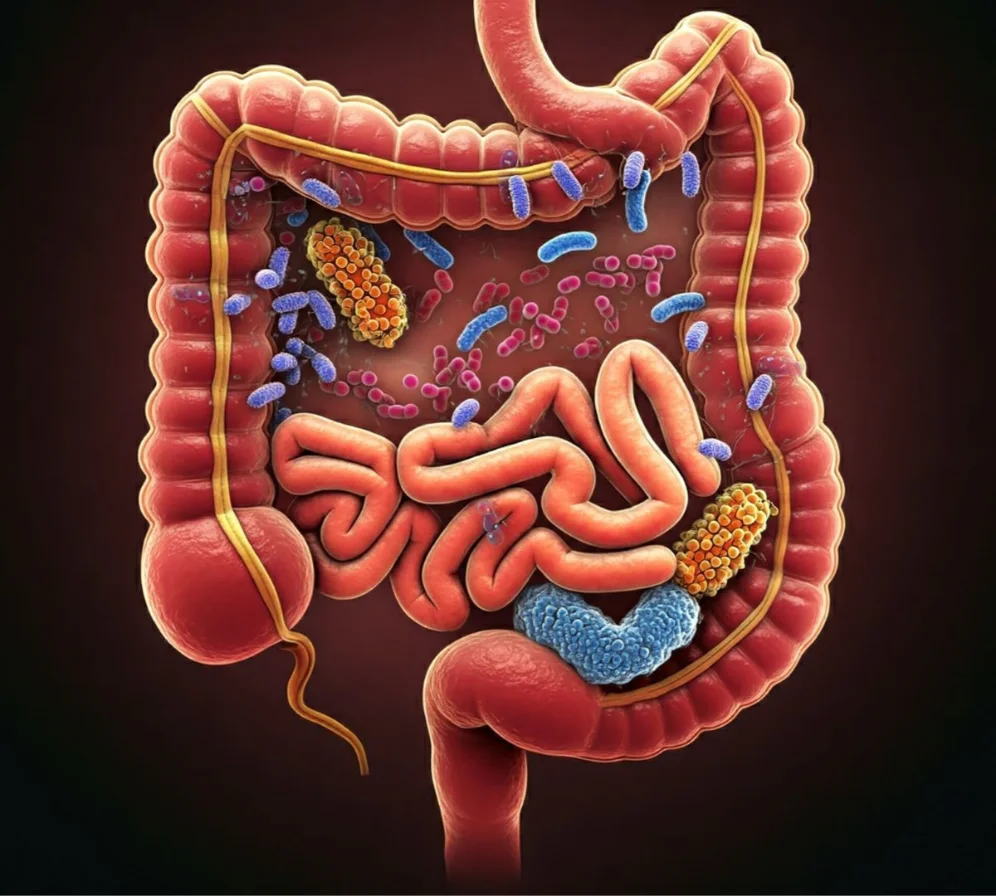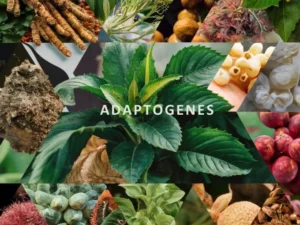Your Gut: More Than Just a Digestive Tube
Have you ever felt that “gut feeling” about something? It turns out there might be more to it than just intuition. Nestled within the twists and turns of your digestive tract lies a bustling metropolis teeming with trillions of tiny residents – your gut microbiome. Far from being mere stowaways, these microorganisms play a pivotal role in your overall health and well-being.
A Microscopic World of Wonder
The gut microbiome is like a miniature rainforest, home to an incredible diversity of bacteria, viruses, fungi, and other microbes. Each person’s microbiome is as unique as their fingerprint, shaped by a complex interplay of genetics, diet, lifestyle, and even the environment.
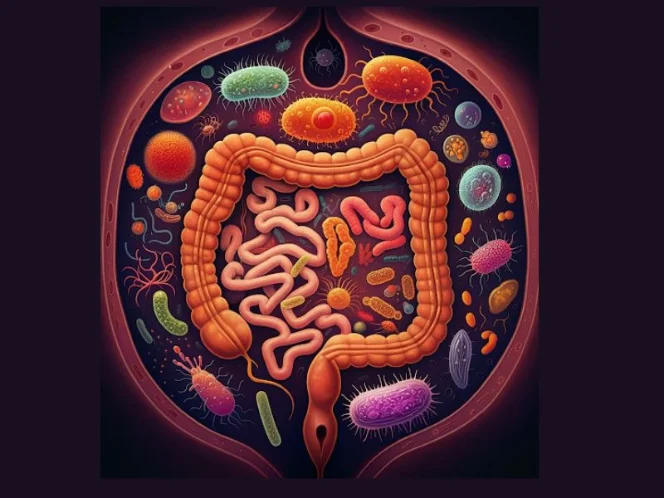
The Unsung Heroes of Health
Don’t underestimate these microscopic powerhouses! They’re not just passive residents; they’re actively involved in a multitude of essential functions, from helping you digest food to bolstering your immune system and even influencing your mood. In essence, your gut microbiome is an integral part of you, a hidden ecosystem working tirelessly to keep you healthy.
The Journey Ahead
In this exploration of the gut microbiome, we’ll delve into the fascinating world of these tiny inhabitants, uncovering their key roles, the factors that influence their balance, and most importantly, how you can nurture them for optimal health. Get ready to discover the profound impact of your inner ecosystem and unlock the secrets to a happier, healthier you!

The Gut Microbiome in Depth: A Symphony of Diversity
Your gut microbiome isn’t just a random collection of microbes; it’s a carefully orchestrated symphony of diversity. Each type of microbe plays its own unique tune, contributing to the overall harmony of your gut health.
Diversity is Key: The More the Merrier
Think of your gut microbiome as a vibrant ecosystem, like a rainforest teeming with life. The greater the variety of species – or in this case, microbes – the more resilient and balanced the ecosystem. A diverse gut microbiota is generally considered a hallmark of good health.

Why is diversity so important? Well, a wide array of microbes ensures that various functions are carried out effectively. It’s like having a team of specialists, each with its own expertise, ready to tackle any challenge that comes its way. A diverse microbiome also helps to keep things in check, preventing any one type of microbe from dominating and causing trouble.
Key Functions of the Microbiome: The Multi-talented Microbes
Your gut microbes are like tiny chefs, construction workers, and even diplomats, all rolled into one. Let’s take a closer look at some of their impressive talents:
Digestion: Breaking Down the Building Blocks
One of the most well-known roles of the gut microbiome is in digestion. These microbes help us break down complex carbohydrates that our bodies can’t digest on their own, such as fiber found in fruits, vegetables, and whole grains. They also produce essential vitamins like B vitamins and vitamin K, contributing to our overall nutritional status.
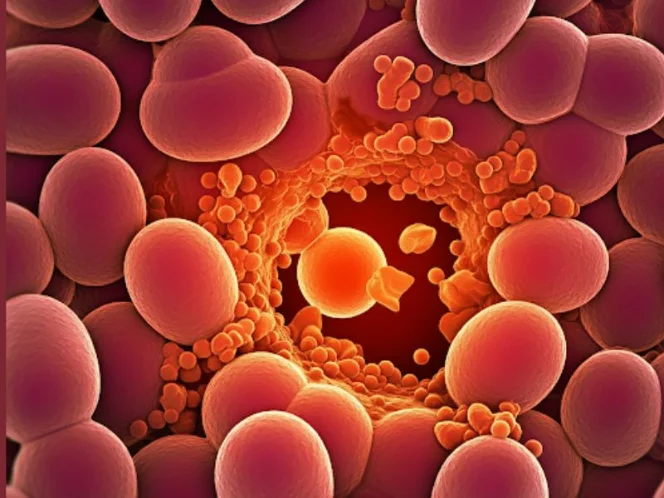
But that’s not all. Gut microbes also produce short-chain fatty acids (SCFAs), which are vital for gut health. SCFAs provide energy to the cells lining your colon, helping to maintain a strong gut barrier and reduce inflammation. They even play a role in regulating appetite and metabolism.
Immune System: Training the Body’s Defense Force
Did you know that a whopping 70% of your immune system resides in your gut? Your gut microbiota plays a critical role in educating and training your immune system, helping it distinguish between harmless substances and potential threats.
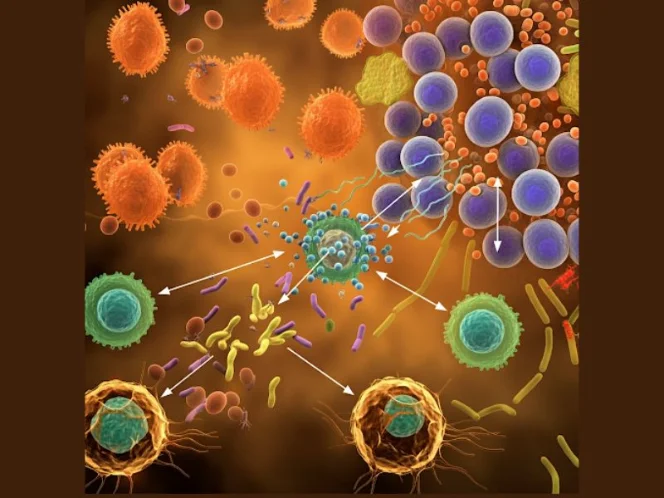
A healthy and balanced gut microbiome helps to promote immune tolerance, preventing the immune system from overreacting and attacking the body’s own tissues, a phenomenon that can lead to autoimmune diseases. It also strengthens the gut barrier, preventing harmful substances from leaking into the bloodstream and triggering inflammation.
Mental Health: The Gut-Brain Connection
You might be surprised to learn that your gut microbes can influence your mood, stress levels, and even cognitive function. The gut and brain are constantly communicating through a complex network known as the gut-brain axis.
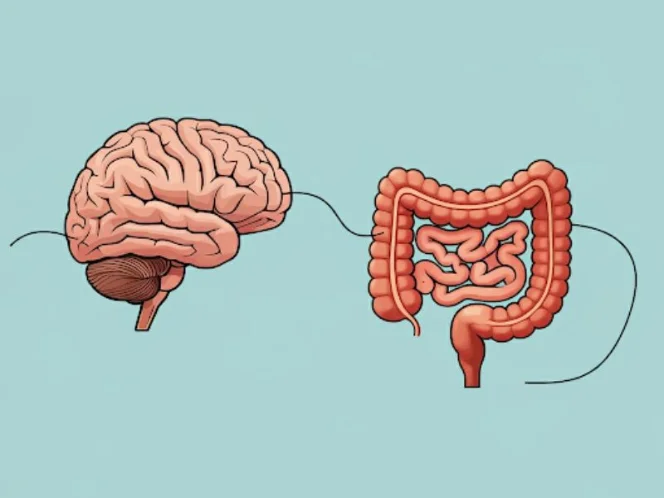
Gut microbes produce neurotransmitters like serotonin and dopamine, which play a crucial role in mood regulation. They also influence the stress response and can even impact the development and function of the brain. Emerging research suggests that imbalances in the gut microbiome may contribute to mental health conditions such as depression and anxiety.
The gut microbiome is truly a marvel of nature, a dynamic and complex ecosystem that profoundly impacts our health and well-being. By understanding its key functions and nurturing its diversity, we can unlock a wealth of benefits for both our physical and mental health.
Factors Affecting the Gut Microbiome: Nurturing or Neglecting Your Inner Garden
Just like a garden, your gut microbiome requires care and attention to thrive. A variety of factors can influence the balance of your gut flora, shaping the composition and diversity of your inner ecosystem. Let’s explore some of the key players:
Diet: You Are What You Eat (and So Are Your Microbes!)
The old adage holds true, especially when it comes to your gut microbiome. The foods you consume directly impact the types and abundance of microbes residing within you. Think of your diet as the fertilizer for your gut garden.
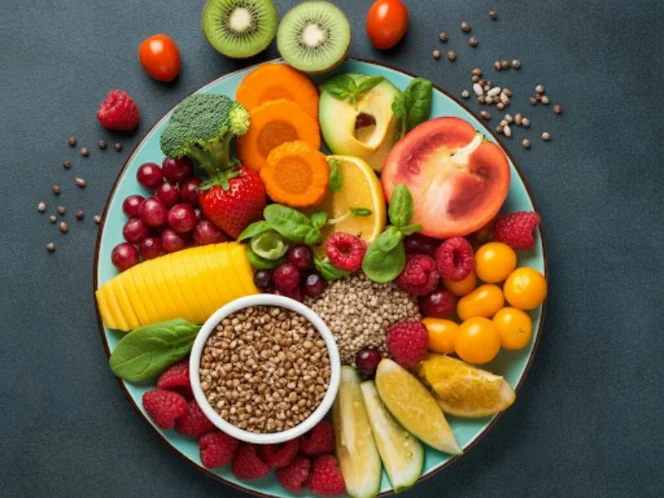
A diet rich in fiber from fruits, vegetables, and whole grains acts like a feast for beneficial microbes. Fiber provides nourishment and encourages the growth of these helpful bacteria, which in turn produce those valuable short-chain fatty acids (SCFAs) we discussed earlier.
On the other hand, a diet high in processed foods, added sugar, and artificial sweeteners can disrupt the delicate balance of your gut flora. These foods can promote the growth of less desirable microbes, leading to dysbiosis or an imbalance in the gut microbiome.
Lifestyle: Beyond the Dinner Plate
While diet plays a crucial role, it’s not the only factor shaping your gut microbiome. Lifestyle choices, such as stress levels, sleep patterns, and physical activity, can also significantly impact the health of your inner ecosystem.

Chronic stress can wreak havoc on your gut microbiome, altering its composition and reducing its diversity. Lack of sleep can also disrupt the gut-brain axis, affecting the communication between your gut and brain. On a positive note, regular exercise has been shown to promote a healthy gut microbiome, increasing the abundance of beneficial bacteria.
Medications: The Double-Edged Sword
Medications, especially antibiotics, can profoundly impact your gut microbiome. While antibiotics are essential for fighting infections, they can also indiscriminately wipe out both good and bad bacteria in your gut. This can lead to a temporary or even long-term imbalance in your gut flora.

It’s not just antibiotics; other medications like proton pump inhibitors, anti-inflammatory drugs, and even certain antidepressants can also affect your gut microbiota. It’s important to be mindful of the potential effects of any medications you’re taking and discuss them with your healthcare provider.
Genetics: Nature’s Blueprint
While your gut microbiome is shaped by your environment and lifestyle choices, your genes also play a role. Certain genetic variations can influence the composition and function of your gut microbiota, predisposing you to certain health conditions or influencing your response to dietary interventions.
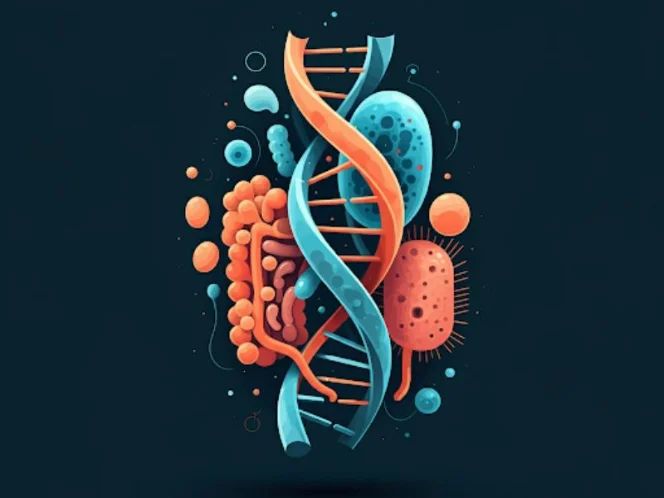
However, it’s important to remember that genes are just one piece of the puzzle. While they provide a blueprint, your lifestyle choices and environmental exposures can significantly modify their expression and impact your gut health.
Understanding the interplay of these various factors empowers you to take proactive steps to nurture your gut microbiome. By making informed choices about your diet, lifestyle, and medication use, you can cultivate a thriving inner ecosystem and reap the rewards of optimal health and well-being.
Your Burning Questions About the Gut Microbiome
You’ve got questions about the gut microbiome, and we’ve got answers! Let’s address some of the most common queries that people have about this fascinating inner world.
How do I know if I have a healthy gut microbiome?

While there’s no single test to definitively measure gut health, your body often provides clues. Signs of a flourishing gut microbiota include:
- Regular, comfortable bowel movements: Your gut microbes play a crucial role in digestion, so smooth and regular bowel movements are a good sign.
- Strong immune system: A healthy gut microbiome helps to support a robust immune system, reducing your susceptibility to infections and allergies.
- Stable mood and good mental health: The gut-brain connection means a balanced gut can contribute to a positive mood and overall mental well-being.
- Healthy skin: Emerging research suggests links between gut health and skin conditions like acne and eczema.
On the other hand, signs of an imbalanced gut microbiome, or dysbiosis, might include:
- Digestive issues: Bloating, gas, constipation, or diarrhea can indicate gut trouble.
- Frequent infections or allergies: An impaired immune system may struggle to fight off pathogens and allergens.
- Mood swings or anxiety: The gut-brain axis can be disrupted, leading to mood disturbances.
- Skin problems: Skin conditions may worsen or flare up due to gut imbalances.
Can probiotics improve my gut health?
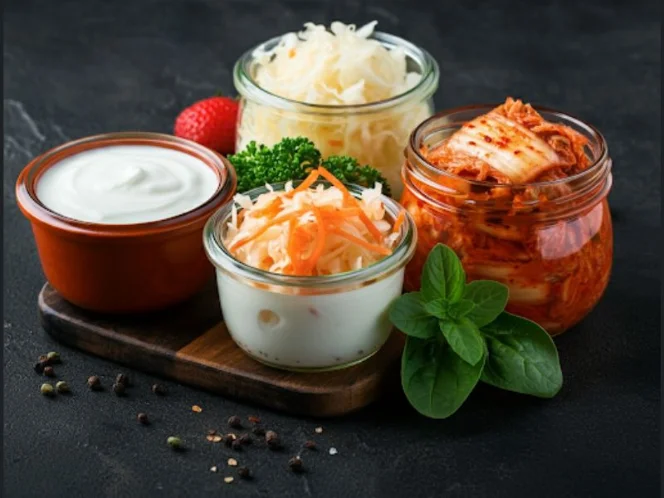
Probiotics are live microorganisms that, when consumed in adequate amounts, confer a health benefit on the host. In simpler terms, they’re like reinforcements for your gut’s good bacteria. They can help restore balance to your gut microbiota, especially after disruptions like antibiotic use.
However, not all probiotics are created equal. Different strains of probiotics have different effects, and their effectiveness can vary depending on the individual and the specific health concern. It’s essential to choose high-quality probiotic supplements or consume probiotic-rich foods like yogurt, kefir, sauerkraut, and kimchi.
What foods are good for the gut microbiome?
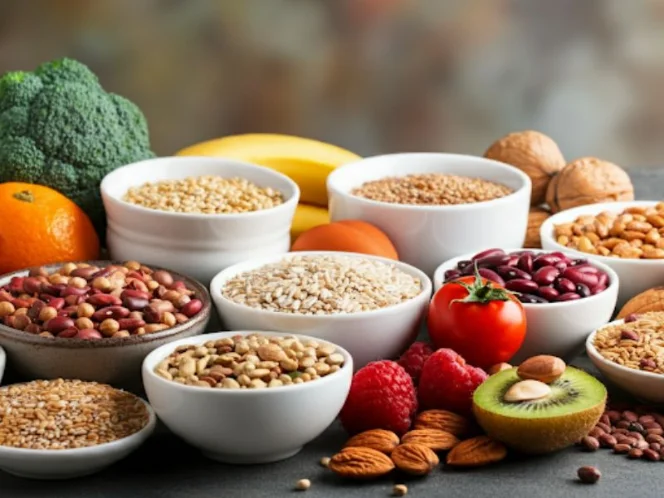
Feeding your gut microbes a healthy and diverse diet is key to supporting their growth and flourishing. Some gut-loving superstars include:
- Fiber-rich foods: Fruits, vegetables, whole grains, legumes, and nuts provide nourishment for beneficial bacteria and promote the production of SCFAs.
- Fermented foods: Yogurt, kefir, sauerkraut, kimchi, and kombucha contain live cultures of beneficial bacteria that can add to the diversity of your gut microbiota.
- Prebiotic foods: Onions, garlic, asparagus, bananas, and oats contain prebiotics, which are non-digestible fibers that act as food for your gut’s good bacteria.
While these are great options, remember that diversity is key. Aim for a wide variety of gut-friendly foods to support a thriving inner ecosystem.
Can the gut microbiome affect my weight?

Research is increasingly revealing a fascinating link between gut health and weight management. Your gut microbiota can influence your metabolism, appetite regulation, and even how your body stores fat.
Certain microbes have been associated with a leaner body composition, while others may contribute to weight gain. An imbalanced gut microbiome can also lead to inflammation, which has been linked to obesity and metabolic disorders.
While more research is needed, current evidence suggests that a healthy gut microbiome can play a supportive role in weight management efforts. By nurturing your gut flora through a healthy diet and lifestyle, you may be able to improve your metabolic health and achieve your weight goals.
Remember, your gut microbiome is a dynamic and ever-changing ecosystem. By staying informed and taking proactive steps to support its health, you can unlock a wealth of benefits for your overall well-being.
Nurturing Your Inner Ecosystem: Cultivating a Thriving Gut Garden
You now understand the profound impact of your gut microbiome on your overall health. So, how can you actively foster a thriving inner ecosystem? It’s simpler than you might think! Let’s explore some actionable steps to nurture your gut garden.
Dietary Tips: Feed Your Microbes Well
Just like you need nutritious food to thrive, so do your gut microbes. Prioritize a diet that provides them with the nourishment they crave:
- Embrace Fiber: Load up on fruits, vegetables, whole grains, legumes, and nuts. Fiber acts as a prebiotic, providing fuel for beneficial bacteria and promoting their growth.
- Ferment for Flavor and Function: Incorporate fermented foods like yogurt, kefir, sauerkraut, kimchi, and kombucha into your diet. These foods are teeming with live cultures of beneficial bacteria that can enrich your gut microbiota.
- Limit the “Junk Food”: Highly processed foods, sugary drinks, and artificial sweeteners can disrupt the balance of your gut flora. Cutting back on these can help create a more hospitable environment for beneficial microbes.

Lifestyle Recommendations: Beyond the Plate
Nurturing your gut microbiome goes beyond what you eat. Your lifestyle choices also play a crucial role in maintaining a healthy gut:
- Stress Less: Chronic stress can negatively impact your gut microbiota. Find healthy ways to manage stress, such as meditation, yoga, or spending time in nature.
- Sleep Soundly: Aim for 7-8 hours of quality sleep each night. Sleep deprivation can disrupt the gut-brain axis and affect the balance of your gut microbes.
- Get Moving: Regular physical activity has been shown to promote a diverse and healthy gut microbiome. Find activities you enjoy and make them a part of your routine.

Consider Probiotics and Prebiotics: A Helping Hand
In addition to dietary and lifestyle changes, probiotics and prebiotics can provide an extra boost to your gut health:
- Probiotics: These live beneficial bacteria can help restore balance to your gut microbiota, especially after disruptions like antibiotic use. You can find them in supplements or fermented foods.
- Prebiotics: These non-digestible fibers act as food for your good bacteria, promoting their growth and activity. They’re found in foods like onions, garlic, asparagus, bananas, and oats.
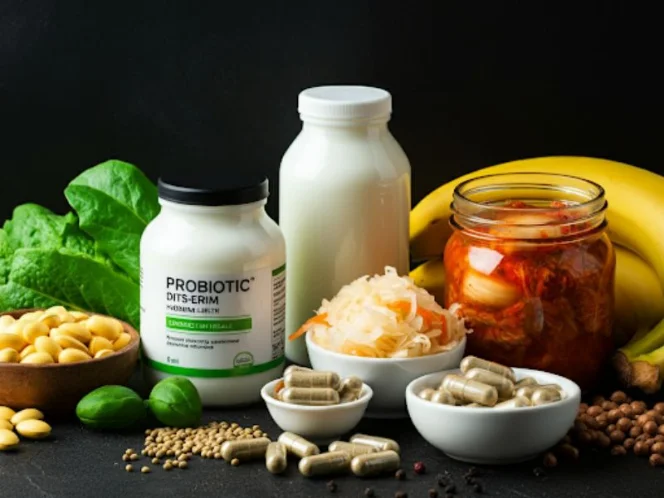
Remember, it’s essential to choose high-quality probiotic supplements and consult with your healthcare provider before starting any new supplement regimen.
By embracing these dietary and lifestyle recommendations and considering the use of probiotics and prebiotics, you can actively nurture your inner ecosystem and reap the rewards of a thriving gut microbiome. Remember, small changes can make a big difference!
Embrace Your Inner Ecosystem: The Path to Vibrant Health
As we’ve journeyed through the fascinating world of the gut microbiome, it’s clear that these tiny inhabitants play a monumental role in our overall well-being. From digestion and immunity to mental health and beyond, the influence of our gut flora is vast and profound.

We’ve uncovered the importance of a diverse and balanced microbiome, explored the factors that can disrupt its harmony, and learned how to nurture it through dietary choices, lifestyle adjustments, and targeted interventions like probiotics and prebiotics.
Remember, your gut microbiome is not static; it’s a dynamic ecosystem that responds to your every choice. By embracing a gut-friendly lifestyle, you’re not just feeding your microbes – you’re investing in your own health and happiness.
So, start today! Embrace the power of fiber, savor the tang of fermented foods, manage stress, prioritize sleep, and get moving. Your gut microbes will thank you, and you’ll reap the rewards of a thriving inner ecosystem.
Final Tip: Don’t hesitate to seek guidance from a healthcare professional or registered dietitian. They can provide personalized recommendations based on your individual needs and health goals. Remember, a healthy gut is a journey, not a destination. Embrace it, nurture it, and enjoy the lifelong benefits of a vibrant inner ecosystem

